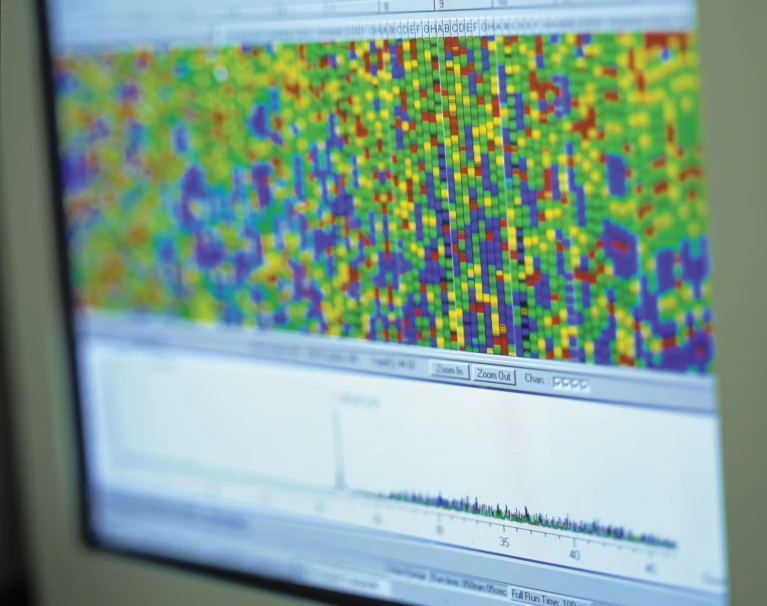सीएसआईआर - कोशिकीय एवं आणविक जीवविज्ञान केन्द्र
वैज्ञानिक तथा औद्योगिक अनुसंधान परिषद
भारत का नवप्रवर्तन इंजन
Date : अगस्त 23, 2024

Hundreds of thousands of stretches of DNA have remained unchanged in humans and other primates for over 65 million years but not other mammals, genetic scientists have found1. These evolutionary records could play an important role in improving human health.
Constrained genes are parts of the genome that don’t encode proteins. They carry most of the genetic variations linked to risk of diseases. Identifying constrained sequences shared by species evolutionarily close to humans is challenging.
An international team of researchers, including a group at the CSIR-Centre for Cellular and Molecular Biology in Hyderabad, assembled the genomes of 239 species of primates (almost half of primate species) and compared them to the genomes of 202 mammal species.
They analysed regions in the genome that lack protein-coding genes but control the activity of nearby or distant genes in humans and other primates.
Previously, these regions were thought to be non-functional, but the researchers say such high levels of conservation, specifically across primates, indicate they are responsible for the development of characteristic features in humans, apes and monkeys not found in other animals.
The study expands the number of known conserved noncoding elements in the human genome and reveals that mutations in these regions often cause genetic disorders, including high cholesterol. Understanding the genetic causes of complex human diseases will help improve diagnoses, they add.
 Advertisement no 07/10 for the post Junior Scientist.
Advertisement no 07/10 for the post Junior Scientist.
 List of shortlisted candidates for the temporary positions against CCMB Web Notif.No.0724/B- [26-08-2024]
List of shortlisted candidates for the temporary positions against CCMB Web Notif.No.0724/B- [26-08-2024]
 Result of selected candidates for the temporary positions against CCMB Web Notif.No.0724/A - [21-08-2024]
Result of selected candidates for the temporary positions against CCMB Web Notif.No.0724/A - [21-08-2024]
 Notification of Schedule for Trade Test and Downloading of Admit Cards for the posts of Gr. II (1)/Technician (1) against Advt.No:01/2021 - [19-08-2024]
Notification of Schedule for Trade Test and Downloading of Admit Cards for the posts of Gr. II (1)/Technician (1) against Advt.No:01/2021 - [19-08-2024]
 List of selected candidates for the temporary positions against CCMB Web Notif.No.0624/A - [14-08-2024]
List of selected candidates for the temporary positions against CCMB Web Notif.No.0624/A - [14-08-2024]
 List of shortlisted candidates for the temporary positions against CCMB Web Notif.No.0724/A - [02-08-2024]
List of shortlisted candidates for the temporary positions against CCMB Web Notif.No.0724/A - [02-08-2024]
 Notification No.0824/A for various temporary positions on contractual basis- [02-08-2024]
Notification No.0824/A for various temporary positions on contractual basis- [02-08-2024]
 Notification No.0724/B for various temporary positions on contractual basis - [29-07-2024]
Notification No.0724/B for various temporary positions on contractual basis - [29-07-2024]
 List of shortlisted candidates for the temporary positions against CCMB Web Notif.No.0624/A- [19-07-2024]
List of shortlisted candidates for the temporary positions against CCMB Web Notif.No.0624/A- [19-07-2024]
 List of Provisionally empanelled candidates for Engagement as Project staff Vide Notif.No.2024/1 - [15-07-2024]
List of Provisionally empanelled candidates for Engagement as Project staff Vide Notif.No.2024/1 - [15-07-2024]